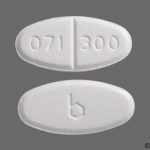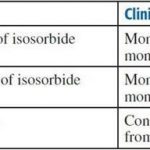Contents
- 1 Is Propylene Glycol Harmful to Humans?
- 1.0.1 Where is propylene glycol used?
- 1.0.2 Is propylene glycol toxic?
- 1.0.3 What amount of propylene glycol is safe for human use?
- 1.0.4 Are there any health risks of propylene glycol?
- 1.0.5 Who should not use propylene glycol-containing products?
- 1.0.6 Is there a treatment for propylene glycol toxicity?
- 1.0.7 How to avoid propylene glycol
Is Propylene Glycol Harmful to Humans?
Propylene glycol is a common chemical found in various products. Research on the health risks of propylene glycol varies.
Propylene glycol is widely used in the food, cosmetic, medicine, and manufacturing industries. Most studies have found that this chemical is toxic in high doses. However, the food-safe glycol found in the products you eat rarely has any negative effects on human health.
Propylene glycol, also known as PG, is a petroleum-based product represented by the chemical formula C3H8O2. It is a clear, oily liquid that is odorless, tasteless, and colorless. It easily absorbs and dissolves in water, making it widely used in various industries.
Propylene glycol is known by other names, including:
- Trimethyl glycol
- 1,2-dihydroxypropane
- Methyl glycol
- 1,2-propanediol
Propylene glycol is sometimes confused with ethylene glycol, which is highly toxic and unsuitable for use in food products.
Where is propylene glycol used?
Propylene glycol is found in many daily use products, such as:
Processed foods: It is used as an additive in processed foods to improve flavor, texture, and shelf life.
Medications: It helps the body absorb chemicals and is used in oral and topical medications.
Cosmetics: It is used in various cosmetic and hygiene products, including soaps, lotions, and deodorants.
Industrial products: It is used in products like coolants, paints, and e-cigarettes.
Is propylene glycol toxic?
Propylene glycol has low levels of toxicity and is considered moderately safe for human health. Cases of toxicity mainly occur with high doses of medications containing propylene glycol. The body excretes about 45% of propylene glycol, while the rest is converted into lactic acid. Toxic doses can lead to acidosis and organ failure.
What amount of propylene glycol is safe for human use?
The US FDA recognizes propylene glycol as safe when consumed within recommended limits. The FDA suggests a daily intake of about 23 mg per kg of body weight for individuals aged 2 to 65. The WHO guideline is 25 mg per kg of body weight.
The safe amount of propylene glycol in food varies by country. In the US, people consume around 34 mg/kg daily, while in Europe, the acceptable amount is only 1 g/kg.
Are there any health risks of propylene glycol?
While propylene glycol is generally safe, high doses can lead to certain side effects:
Skin allergies: Propylene glycol can cause skin irritation and dryness, or rashes. It can also cause mild conjunctivitis if it gets into the eyes.
Neurological problems: High doses of propylene glycol may lead to central nervous system depression, loss of balance, seizures, and convulsions.
Heart problems: Normal doses of propylene glycol do not generally cause heart-related symptoms, except in rare cases with young children.
QUESTION
Who should not use propylene glycol-containing products?
Propylene glycol poses greater health risks for people with kidney or liver disease, as their organs may not efficiently process and remove the chemical. Pregnant women, children under four, and individuals at high risk of acute toxicity should also avoid these products.
Is there a treatment for propylene glycol toxicity?
Treatment for propylene glycol toxicity depends on the patient’s condition. Discontinuing the use of glycol-containing medications and using specific treatments like fomepizole or sodium bicarbonate may be necessary.
How to avoid propylene glycol
To reduce the risk of health problems, check labels of commonly used products for propylene glycol. Avoid processed junk foods and opt for fresh, wholesome foods instead. If you have an allergy or specific condition, inform your doctor or pharmacist to find safer alternatives.
Sources: [insert sources]


